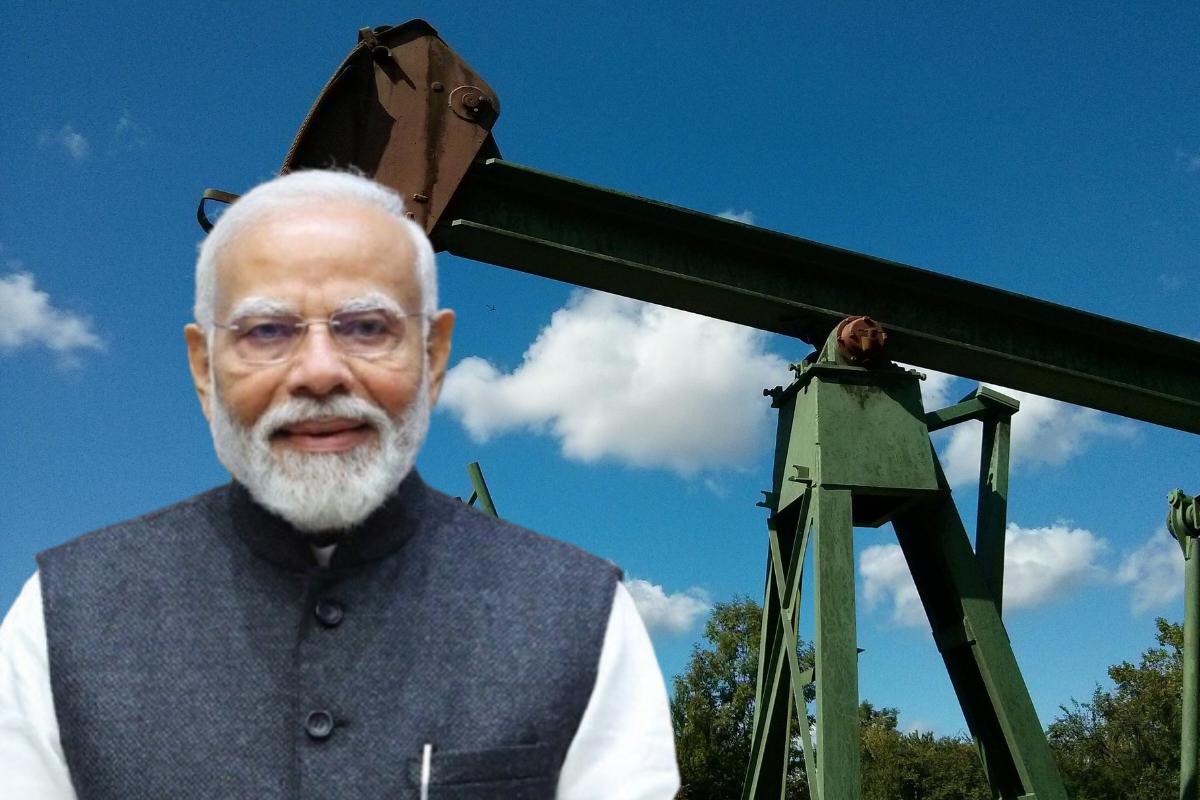
A new report jointly released by Bloomberg and Kpler has sent shockwaves through the global energy market. According to the findings, 80% of Russia’s Ural-grade crude oil exports via sea in 2025 have been purchased by one country—India. This stunning revelation underscores India’s emergence as Russia’s largest and most reliable oil market amid global geopolitical turmoil.
A screenshot circulating across international media platforms confirms the same, highlighting the extent to which India has become central to Russia’s energy export strategy. This isn't a minor statistic. It reflects a major shift in global oil dynamics and shows that India is now at the heart of Russia’s energy trade.
Notably, this 80% figure isn't limited to government procurement. Two major private companies, Reliance Industries and Nayara Energy, have played a massive role. Together, Reliance and Nayara account for 45% of Ural crude imports to India, showing the depth of private sector involvement in this growing partnership.
The biggest headline in this oil diplomacy is the long-term agreement signed between Reliance Industries and Russia’s state-owned oil giant Rosneft. In late 2024, the two companies inked a 10-year deal under which Rosneft will supply 5.5 million barrels of crude oil per day to Reliance, totaling $13 billion annually. Over a decade, this amounts to an oil supply that exceeds the yearly consumption of many nations.
This deal is a major strategic win for India. It secures a consistent and discounted oil supply, while Russia gets a dependable buyer amidst ongoing Western sanctions. India, in turn, is less concerned with Western restrictions and more focused on securing energy independence. It would be fair to say that today, it’s not just Rosneft thanking Reliance, but the Kremlin expressing gratitude toward India.
Nayara Energy is another critical player in this narrative. Unknown to many, Nayara has deep Russian roots. In 2017, Rosneft acquired a 98% stake in Essar Oil for $12.9 billion, which was later restructured and renamed Nayara Energy. Currently, Rosneft holds a 49.13% stake in the company. In 2022, Russian oil accounted for 27% of Nayara's purchases. By 2025, that figure surged to 72%, further emphasizing Russia’s increasing footprint in India’s energy landscape.
From India’s perspective, this surge in Russian oil imports is an unambiguous benefit. The country is receiving cheaper crude, and its refining companies are reporting substantial profits. The question arises: why is India leaning so heavily towards Russia?
The answer lies partly in the geopolitical instability of the Middle East. Recently, Iran threatened to close the Strait of Hormuz—a critical maritime chokepoint through which 20% of the world’s oil supply passes—if the U.S. attacked its nuclear facilities. Such a move could push crude oil prices to $100 or more per barrel. But India isn’t panicking. It has prepared an alternative strategy—Russia.
By securing a stable, long-term supply of Russian oil, India has positioned itself smartly amidst uncertain times. It sends a clear message: in geopolitics, preparation is the real defense. This strategic foresight is making even major powers like the U.S. and China rethink their energy calculations.
India’s growing oil trade with Russia is part of a broader deepening of bilateral ties. While much of the West distanced itself from Moscow after the Ukraine war, India maintained its neutrality and focus on national interest. Today, India imports not only the most Russian crude but also LNG (liquefied natural gas) at highly competitive prices. The two nations are also collaborating on defense, space, and technology.
Russian President Vladimir Putin has publicly acknowledged India’s strategic autonomy, stating that India is a nation that safeguards its national interests while honoring its friendships. In the wake of these developments, Russia is now viewing India—not China—as the future of its energy partnership.
India is also making major moves on the strategic energy front. Beyond buying oil, India is planning for long-term energy security. This includes long-term contracts like Reliance-Rosneft, building up strategic petroleum reserves, expanding refining capacity, and investing heavily in renewables like solar and green hydrogen. India is becoming a global example of energy independence rooted in sovereign decision-making.
India is not yielding to OPEC pressures or U.S. influence. It is making decisions based solely on national interest and strategic foresight.
Now, shifting focus to defense and strategic cooperation: India and Russia share a longstanding defense partnership. India has purchased the advanced S-400 air defense system from Russia, which was recently used successfully during Operation Sindhur. The joint Indo-Russian BrahMos missile was also deployed during this mission. Talks are ongoing for joint development of next-generation fighter jets like the Su-57.
Beyond defense, India and Russia are expanding their partnership in nuclear energy, cybersecurity, and space exploration. One of the landmark initiatives includes the activation of the Chennai-Vladivostok maritime corridor, which will further strengthen trade routes between the two nations.
In conclusion, India’s relationship with Russia is growing stronger across multiple dimensions—energy, defense, space, and strategic alignment. In an increasingly fragmented world, India has demonstrated that principled pragmatism and long-term planning can yield not just security, but influence and resilience.
Disclaimer: The views and data presented in this article are based on publicly available reports, including Bloomberg and Kpler insights. The information is intended for educational and informational purposes only and does not constitute financial or geopolitical advice.




